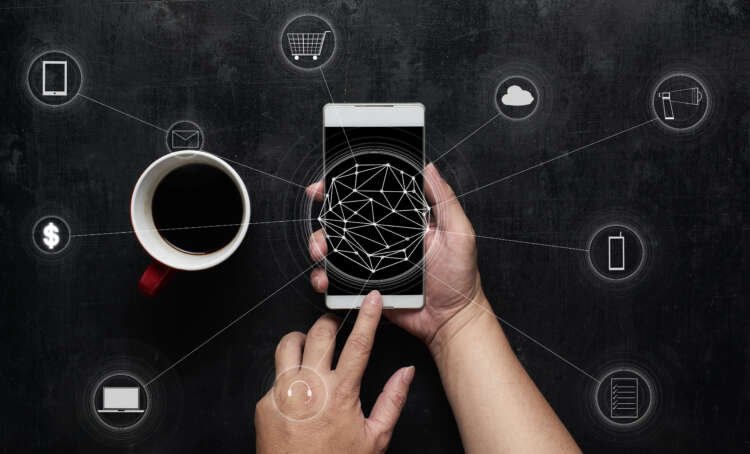
Health and care services in England have been in urgent need of reform. Before the Covid-19 pandemic swept the planet, an ageing population and also the impact of austerity meant the pressures on our systems were close to breaking point.
The pandemic retains an extraordinary effect on our health and social care services, and public health. These effects can last long afterwards the effects of the pandemic have subsided.
The purchase of and deployment of technologies are essential to enable the NHS and social care to develop current digital-enabled transformation, support better public health management, and enable the united kingdom to become a global leader in public places health.
Covid-19 and digitisation
Covid-19 has accelerated digital transformation of health and social care, and highlighted the positive impact that this can have on public health.
There is now an increasing acceptance and perceived usefulness through the public of the role technology plays in service provision and also the control over our overall health. Be it using virtual care platforms, remote monitoring solutions, communication tools, digital apps or sophisticated data platforms, our services are entering a new phase of digital maturity.
The pandemic has exposed several challenges and flaws but none of them more pressing than widening health inequalities. An increasing effort is needed to ensure the widening gap is reduced. Intelligent use of actionable data and personalised services will give patients and service users the opportunity to be provided solutions that will be more accessible and convenient to them.
Smart solutions and technology enabled care help to safeguard the safety of individuals, especially where people are particularly frail or at risk of falls. Using technology can offer 24 hour reassurance and enables care service providers to deliver care safely and efficiently.
Clinicians take advantage of securing improved use of patients within their homes through remote patient monitoring , providing holistic and real-time patient insight. This enables preventative care as stakeholders are better placed to monitor vulnerable individuals, identifying potentially adverse events quickly, mitigating their effects and preventing the requirement for more complicated interventions. This not just reduces the pressure on our overall health and social care systems, it reduces costs for health care providers and also the public.
The benefits of TECS
The TEC Services Association conducted an evaluation across 39 councils which identified average annual savings of lb1,163 gross/lb890 net per TECs user1. This was typically split 70 % cost avoidance and 30 percent cashable savings1. Clearly, there are significant cost advantages to purchasing such technology, in rapid and longer term.
Many people wish to continue living independently and safely provided possible, using the reassurance that care and support will be provided when needed. Technologies are widely seen as an way to address this challenge, enabling the provision of top quality care to an ageing and post-pandemic population.
RPM in practice
Bolton NHS Foundation Trust and Bolton Clinical Commissioning Group committed to remote patient monitoring, coupled with multi disciplinary teams, for 34 from the area's care homes to protect residents, staff and clinicians during and past the COVID crisis.
Where care staff have concerns concerning the health of a resident they are able to make use of a tablet to record their vital signs and enable them to answer questions about their own health and symptoms.
The remote monitoring approach has supported the Trust and CCG throughout the pandemic, and can enable the provision more proactive care within the long term, as early intervention avoids the need for more complicated care and improves outcomes, reducing pressure on primary and secondary care services.
Building on the technological progress made during COVID-19 can give more and more people the liberty to reside where they choose, and be sure much-needed medical and social care resources are channelled towards the areas that need them most.
Looking ahead
A healthcare system fit for the 21st century should have digital innovation at its core. As innovative technology is constantly on the transform every facet of todays lifestyles, there is a growing body of evidence demonstrating the outcome this is having on population health and wellness. Where it has not already done this, digitisation is placed to the touch every corner of health and social care, and open new frontiers for practice.
If digital is to be placed in the centre and services information transformation, patients must be engaged with services through access to their data and also the digital tools to drive their own care. By empowering patients to become co-creators that belongs to them health, they may be reframed as informed decision makers as opposed to passive recipients of care. Citizens must, therefore, be engaged with the development of new types of digital- and data-enabled healthcare.
To drive the vision for any highly personalised care model to permit more older and vulnerable people to live independently for longer, Tunstall has become on track to provide a new intelligent care service called Cognitive Care. This particular service uses advanced AI to detect whether someone's health could be going to deteriorate, spot a potentially undiagnosed condition, or to enable them to resolve an immediate social care need.
Taking data from multiple sources, including motion sensors, smartphones, wearables and recordings,it'll provide a clear picture of the risks someone faces and 'nudge' them or their caregivers to respond, or alert an expert.
Cognitive Care is the next step in the evolution of Tunstall's predictive care technology, which uses data from at-home monitoring devices to spot worrying alterations in behaviour and suggest the most appropriate course of action It is designed to improve quality of life for additional people, while lowering the quantity of GP visits, ambulance callouts, hospital admissions and interest in local authority-funded residential care.


